PH GDP Growth Slows in Q1 But Beats Expectations


11 May 2023 – Philippine GDP growth slowed to 6.4% in the 1st quarter of 2023. The PSA noted that this is the lowest recorded rate for the Philippines since the start of the recovery from the pandemic in the second quarter of 2021. However, this exceeds the forecasts of local economists whose estimates are within the median of 6% and slightly exceeds recent forecasts of the Asian Development Bank and the International Monetary Fund who both projected around 6%. This is still within the government’s GDP target of 6-7%.
On the production side, Services grew 8.4%, Industry 3.9%, and Agriculture 2.2%. On the demand side, Household Spending grew 6.3%, Government Spending 6.2%; and Investment (gross capital formation) 12.2%. Trade lagged with exports of goods and services inching up 0.4% and imports of goods and services rising 4.2%. NEDA Sec. Balisacan noted that the manufacturing sector is highly volatile due to global problems in the supply chain hence, the laggard growth.
Strong sub-sector growth was recorded in Other Services (which includes arts, entertainment, and other service activities) at 36.5%, Accommodation and Food Service activities (26.9%), Transportation and Storage (14.3%), and Construction (10.8%). Meanwhile, laggards during the first quarter were Mining and Quarrying (-2.2%), Public Administration and Defense (1.5%), and Manufacturing (2.0%).
Growth slowed from 7.1% in the 4th quarter of 2022. Before today’s release, the OECD projected the Philippines will grow 5.7% this year, the second fastest in Southeast Asia after Vietnam. Sec. Balisacan today said the government still projects 6% to 7% growth this year and 6.5% to 8% for 2024 to 2028. The economy grew 7.6% in 2022, the fastest pace since 1976.
“High inflation remains a challenge,” requiring a “balancing act,” Sec. Balisacan said, noting that the BSP has raised its key policy rates to anchor inflation expectations.
Two recent developments may aid economic growth in the near future. These include the issuance of the Implementing Rules and Regulations (IRR) of the amendments to the Public Service Act, which liberalizes key sectors such as telecommunications and transportation. The Philippines also recently ratified the Regional Comprehensive Economic Partnership (RCEP) Agreement in February 2023, which is currently the world’s largest free trade agreement.
Growth in %
Insights from Key Economists
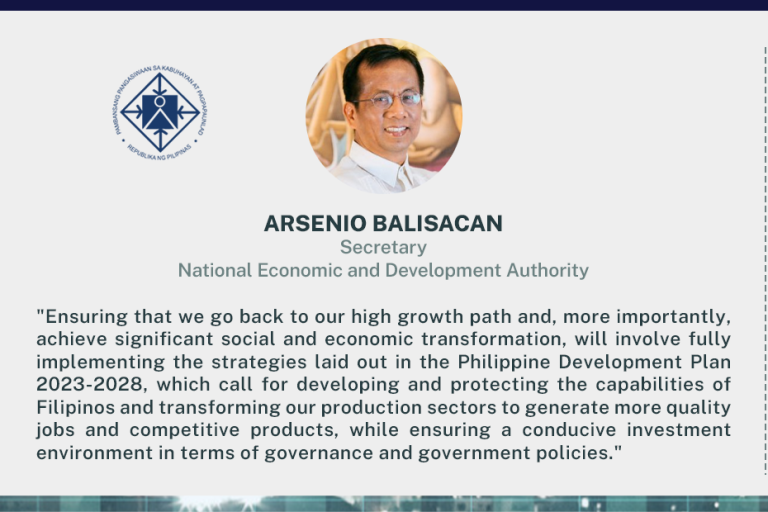
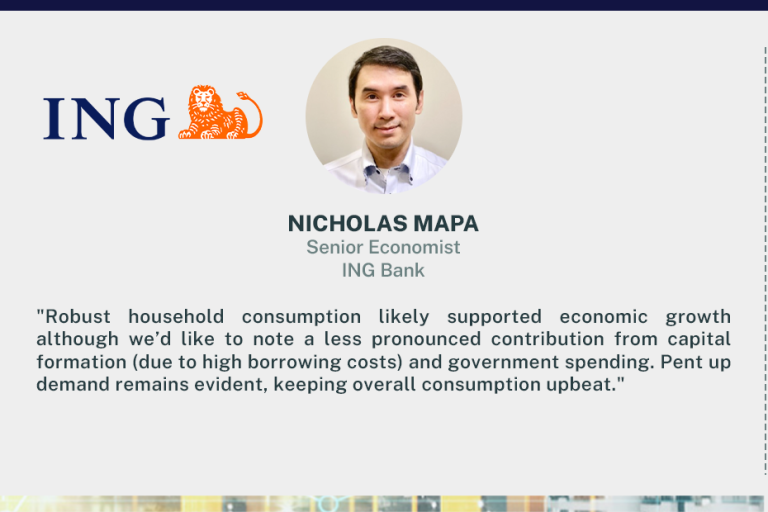
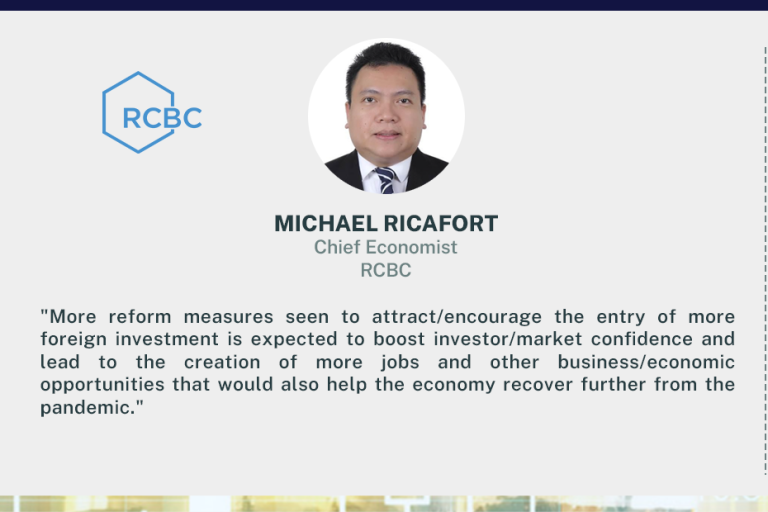
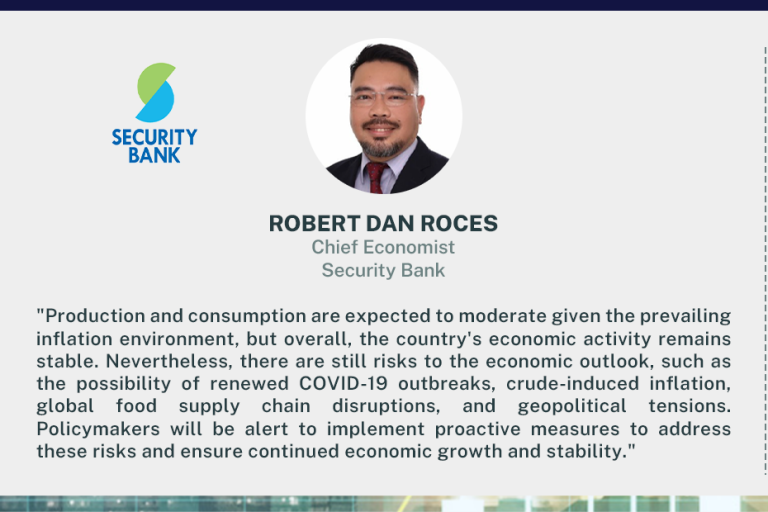
Co-presented by MBC's official Economy Partner

Share MBC's GDP Insights on Social Media
MBC's Economy Dashboard
The Makati Business Club (MBC) pilots its Economy Dashboard and provides a snapshot of key socio-economic data to help executives and policymakers make better decisions in today’s fast-changing economy.
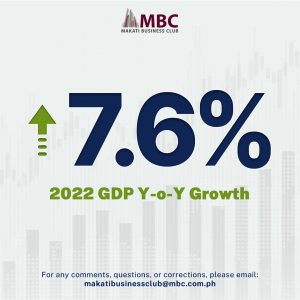
Makati Business Club's Y-O-Y 2022 Economic Highlights
PH Grows by 7.6% in 2022, Exceeds Target
26 January 2023 – The Philippines grew by 7.2% in the 4th quarter, contributing to the full-year growth of 7.6%, the highest since 1976. This also exceeds the government’s target for 2022 set at 6.5 to 7.5% and has exceeded its pre-pandemic growth of 5.9% in 2019.
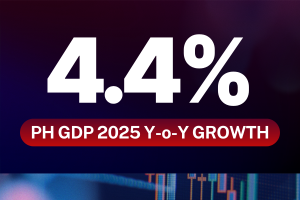
PH Economy Grew at 4.4% in 2025, Lowest Post-Pandemic Growth Recorded
PH Economy Grew 4.4% in 2025; Lowest Post-Pandemic Growth Recorded 29 January 2026 — Philippine Gross Domestic Product grew by 3.0% in the fourth quarter
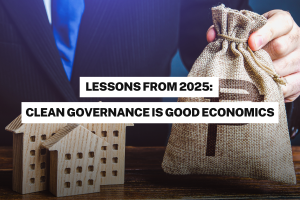
Lessons from 2025: Clean Governance is Good Economics
Lessons from 2025: Clean Governance is Good Economics 26 January 2026 – 2025 started off with a major controversy surrounding the National Budget, which had
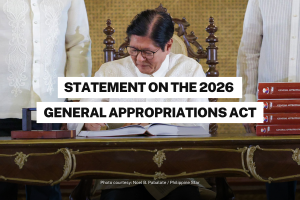
Statement on the 2026 General Appropriations Act
Statement on the 2026 General Appropriations Act 05 January 2026 – The 2026 General Appropriations Act, signed today by the President, represents an improvement compared





